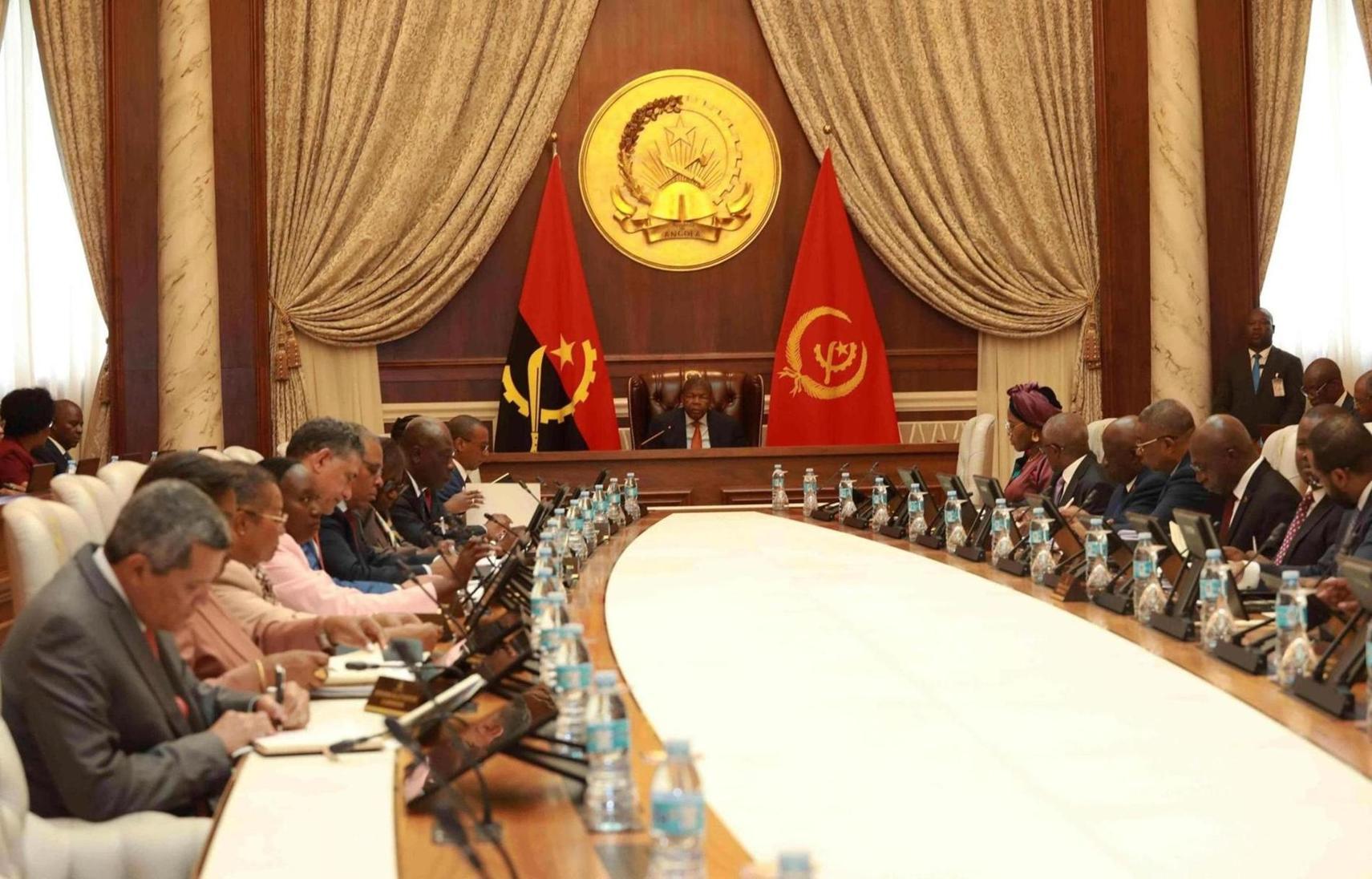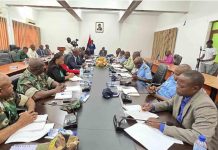Africa-Press – Angola. The Council of Ministers (CM) considered, for submission to the National Assembly, several proposals for diplomas, with emphasis on the Organic Law on the Institutionalization of Local Authorities.
According to a press release, coming out of the 3rd Ordinary Session, guided by the President of the Republic, João Lourenço, the diploma aims to establish the rules on the institutionalization of local authorities, as well as transition measures between local administration of the State and local administration.
Explains that the Executive considers the institutionalization of local authorities to be a relevant measure for strengthening and consolidating the democratic process and translates the practical implementation of the principle of administrative decentralization to bring services and decision-making centers closer to the populations.
The proposal for the Organic Law of the Municipal Guard was also considered, a document that establishes the general regime for the creation, organization and functioning of the Municipal Guard, as a service of the Chamber intended to exercise the function of administrative police, whose competences, powers of authority and organization hierarchical structures are defined by law.
Advances that the Proposed Law on the Remuneration Statute of the Holders of Bodies and Services of Local Authorities was also evaluated, to regulate the forms of remuneration of the Mayor, President and Vice-President of the Municipality Assembly, communal or urban district secretary, executive secretary, secretaries of the Chamber and the secretary of the Board of the Municipality Assembly.
The CM also considered a Draft Presidential Legislative Decree that amends the Organization and Functioning Regime of PR’s Auxiliary Bodies, with a view to reconfiguring PR’s auxiliary ministerial departments.
More specifically, it involves the segregation of the areas that make up the current Ministry of Culture and Tourism, giving way to their separation, so that each of them corresponds to a distinct ministerial department.
Also for submission to the National Assembly, within the framework of foreign policy, the collegiate body assessed the draft diplomas that approved, for ratification or adherence to the Resolution that approves the Treaty of Creation of the African Medicines Agency (AMA).
Parliament also analyzed the Resolution that approves the Marrakesh Treaty to Facilitate Access to Published Works for People who are Blind, Visually Impaired or have other Difficulties in Accessing Printed Text.
The Resolution approving the Protocol Relating to the African Charter on Human and Peoples’ Rights on the Creation of an African Court on Human and Peoples’ Rights also received the CM’s consideration, destined for the National Assembly for ratification or accession.
National Policy for Early Childhood
The Council of Ministers approves the National Policy for Early Childhood, a public policy instrument with a view to materializing the rights constitutionally guaranteed to children,
These rights refer, in particular, to the protection and integral development of minors, through the involvement of all those who effectively participate in their lives, namely parents, guardians, caregivers and teachers.
According to the final communiqué of the meeting, chaired by the President of the Republic, João Lourenço, with the approval of this diploma, the Executive expects the involvement of public and private bodies and civil society in concerted efforts to guarantee children a healthy environment, conducive to their integral development, as well as the dissemination, materialization and expansion of the rights of children, enshrined at internal and international level, especially the 11 commitments to children.
Environmental sector
In the field of the environment, the Council of Ministers approved a diploma that aims to define the value of fees to be charged in environmental conservation areas, a legal instrument that will contribute to their self-financing, helping to recover investments made and guaranteeing, thus, its effective management, the sustainable development of the country and the green economy.
“Manuel Rui” cultural center
Regarding the culture sector, the body approved the creation of the “Manuel Rui” Cultural Center, in the province of Huambo, and approved its organic status.
It is a public, non-profit institution, which aims to promote, value and disseminate national culture and local communities, as well as foster artistic and literary creation, among other actions aimed at the development of socio-cultural processes.
Ministerial departments with new organic statutes
Still in today’s session, the Council of Ministers approved the organic statutes of the ministries of Finance, Planning and Industry and Commerce, with a view to conforming their organic and functional structure to the organization and functioning regime of the Auxiliary Bodies of the President of the Republic and ensuring adequate alignment between ministerial departments in the economic sector.
ANGOP
For More News And Analysis About Angola Follow Africa-Press






